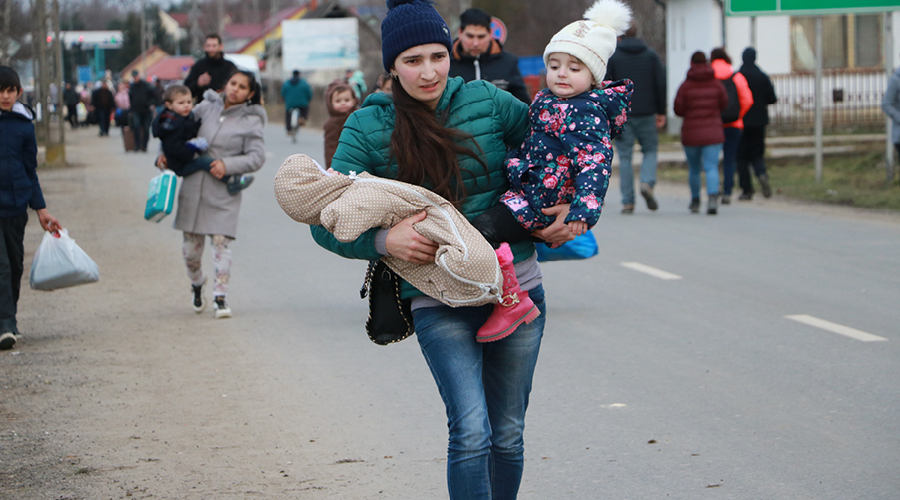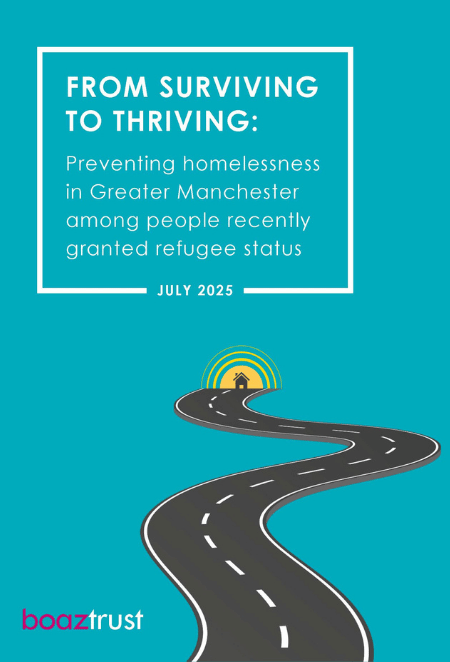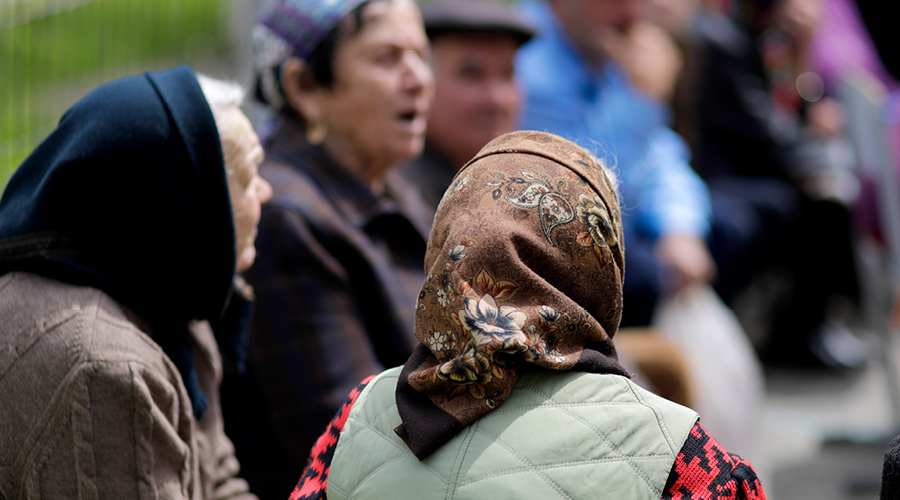Summer articles on topical issues
Also, during Refugee Week, CIH published three articles on issues relating to migrants’ rights.
- In the Big Issue, John Perry explained why refugees need more help, especially from local authorities, to avoid becoming trapped in homelessness. He used recent cases from the Housing and Immigration Google Group to show how some councils fail in their task of helping refugees.
- In Housing Today, John Perry debunked the myths about migrants and housing.
- And BMENational (which represents Black and Minority Ethic housing associations) ran an article on why we have to face the challenge of housing asylum seekers and refugees if we’re to confront racist attacks.
What happens to benefit entitlement following family reunion?
CIH’s Sam Lister, the main contributor to the Housing Rights website, looks at a recent question on family reunion.
This question came up in the housing and immigration Google group about a refugee’s claim for universal credit (UC) when they are joined by a family member:
When a spouse arrives on Refugee Family Reunion, is it the case that they can’t apply for UC for the first 3 months? Normally, a refugee is exempt from the habitual residency test. However, we’ve been told that in this case of a claim for a person whose refugee status came via family reunion, there has to be a minimum stay of three months before they can be exempted from the HRT. Is this right? The spouse tried claiming UC on arrival and was declared an “ineligible partner.”
The short answer is that if the spouse/partner of a sponsoring refugee who is on UC has recently arrived in the UK, the reunited couple will receive the single person’s standard allowance for the first three months, instead of the couple rate, unless the partner has also been given “protection status”.

A person only has protection status if they have been given one of the following kinds of leave: refugee leave, refugee permission to stay, temporary refugee permission to stay, humanitarian protection and temporary humanitarian protection. In practice, it won’t be the first of these because refugee leave is now only given to those who registered their asylum claim before 28 June 2022. But in many cases the partner will instead be granted indefinite leave under family reunion rules (Immigration Rules Appendix Family Reunion). This is a form of indefinite leave but is not protection status.
So, how do these rules work, and why does a couple only get the single person rate for the first three months? First, the easy bit: protection status and family reunion leave are both forms of indefinite leave, so neither partner is “subject to immigration control”. But for UC, unlike the out-of-work legacy benefits it replaces, couples are joint claimants, so both must be eligible and therefore both must be habitually resident. The sponsoring refugee is exempt, but the partner with family reunion leave isn’t unless one of the other exemptions applies (a person from Ukraine, Afghanistan, Sudan etc.).
In these situations, the regulations allow the eligible partner to claim UC as a single person (UC, Regulation 3). A similar outcome occurs for claims for state pension credit (SPC), albeit through a different mechanism – only one member is the claimant but the ineligible partner is treated as not being part of their household (SPC, Regulation 5). This problem doesn’t occur for housing benefit (HB) where only one member is the claimant.
The UC/SPC regulations don’t specify the length of the disqualification. This comes from case law which states that a person who has arrived in the UK to settle won’t be considered as habitually resident for between one to three months. Where the partner is entering the UK for the first time (instead of, say, a British citizen who is returning after living abroad) the disqualification period is usually at the higher end.
This problem doesn’t occur for dependent children in UC, SPC or HB who can be included in the claim without any adverse consequences, provided they have leave with access to public funds (if they don’t, it could put their right to live in the UK at risk).
You can find out more about dependent family members on the law about benefits page of the housing rights website.
Preventing refugee homelessness in Greater Manchester
Amy Merone, Advocacy and Communications Manager at The Boaz Trust, introduces the trust’s new report on helping new refugees to avoid homelessness.

Boaz Trust’s new report reveals the findings of a one-year pilot project (funded by Greater Manchester Combined Authority) to reduce homelessness in Greater Manchester among people recently granted refugee status. As well as detailing the successes in securing private rented accommodation for individuals with refugee status, the report also has recommendations based upon the experiences of those interviewed for the research.
The report shows that individuals endured a difficult asylum process before being granted refugee status, and went on to experience a complex and unclear move-on period, often marked by poor communication. As a result, participants became homeless due to vulnerabilities that were compounded by the asylum and move-on processes; specifically, a lack of financial and housing access, as well as the knowledge and tools needed to begin an independent life in the UK.
After leaving asylum accommodation and becoming homeless, participants most commonly approached their local authority for support where they had varied experiences, particularly during homelessness assessments. Most passed through some form of emergency or transitional housing and went on to engage with the Boaz Trust’s Refugee Homelessness Prevention Project after having been assessed as having no priority need for housing by the local authority.
None of the participants expressed a preference for council-owned or privately rented accommodation, challenging the assumption that individuals with refugee status are solely seeking council homes. Additionally, most wanted to stay in the borough where they were granted refugee status. However, participants also indicated a willingness to relocate if housing opportunities were available. Ultimately, all participants in the research were able to move into housing with the project’s support.
The project’s trauma-informed approach was widely commended, especially when compared to previous experiences related to housing. Recommendations were made by participants to further improve the service, including the need to reach people earlier, before exiting asylum support.
A key learning from the study was the lack of effective social integration activities for individuals while in the asylum system. Participants identified this as a major barrier to integrating in their new communities and beginning a productive life to enable them to contribute to the economy and wider society. Being denied the right to work while in the asylum system, as well as the decimation of ESOL provision, meant that individuals had further challenges to overcome, which intersected with their ability to secure and afford housing options.
The report makes a number of recommendations at both regional and national level, including a permanent extension of the move-on period to 56 days, the improvement and standardisation of homelessness assessments, an expansion of trauma-informed support models, a standardisation of deposits and advance payment policies and practices across Greater Manchester local authorities, and parity of financial support for individuals with refugee status as for others leaving institution care.
In the midst of a national housing crisis, there are clearly no easy answers. However, the report shows that regional place-based responses can help to meet very specific housing challenges that councils are facing. With the right kind of investment (in the broadest sense of the word) homelessness among people who are newly granted refugee status can be addressed and meaningful housing solutions found.
You can download and read the report in full, as well as a shorter policy briefing, here.
Roma housing in London: Barriers and inequalities
Tyanna-May Binns, policy officer of the Roma Support Group, writes about their recently published report.
The Roma Support Group works to empower Roma communities in the UK by challenging discrimination, encouraging Roma to exercise their rights, and supporting integration. To date, we have supported over 65,000 Roma people with their welfare, housing, debt, employability, and immigration issues.

In February 2025, we released our report on Roma housing in London: Barriers and inequalities. It emerged from our Romano Kher: Roma Housing Advocacy Project, which seeks to influence housing policy, strategy, and practice so that public bodies can better meet the needs of Roma migrants.
The report, based on qualitative and quantitative data, is the first to focus on Roma housing in London. It reveals that Roma communities face significant systemic housing challenges, including overrepresentation in the private rental sector, overcrowding, low awareness of housing rights and processes, substandard accommodation, barriers to accessing housing services and discrimination.
Roma in London are more than twice as likely as the general population to rent, exposing them to insecure, unsafe, and overcrowded housing. Only seven per cent of Roma live in socially rented accommodation compared to a London average of 23 per cent, and only 14 per cent of Roma owned their home, compared to the London average of 46 per cent.
Higher than average proportions of Roma live in overcrowded accommodation. This is often due to high rent costs and exploitative landlords, as well as multigenerational living, with around one-third of households comprising three generations.
We also observed a serious lack of awareness among Roma about housing rights, with 37 per cent of Roma unaware of eviction processes or legal protections. Many rent informally, without tenancy agreements or through renting from unregistered landlords. Inevitably, we saw 48 per cent of people who accessed RSG’s health advocacy projects having concerns related to poor housing conditions such as bed bugs, asbestos, flooding, and severe mould.
Many Roma in London are unable to access council housing services due to barriers such as rental discrimination and digital exclusion, preventing them from obtaining support. With access to many public services being tied to immigration status, and because status can only be proved digitally using a share code, 70 per cent of Roma who have obtained their status through the EU Settlement Scheme (EUSS) do not know how to prove their EUSS status by themselves. Immigration status is thus used to gatekeep services.
Many Roma report that letting agents refuse to rent accommodation to them once they were identified as Roma, which aligns with findings from the Pew Research Centre that Roma report the highest prevalence of discrimination in relation to housing of any ethnic group.
To address these systemic issues, we propose the following:
- Given prevalent digital exclusion barriers as well as language and functional literacy barriers among Roma, non-digital access to services needs to reopen. These services need to also include Romanes interpreters who also have the skills to work as bilingual Roma advocates.
- Local authorities need to also take the initiative to employ Roma staff, not just staff who can speak Eastern European languages;
- Further, cultural competency training is necessary for existing staff who currently show clear bias against Roma in housing. RSG advisers have reported approaching a local authority in London to get support for a client and being asked by a housing advisor: “Why don’t they go back to where they came from?” Such discriminatory attitudes undermine trust in public services for Roma.
- Data on Roma needs to be disaggregated to ensure that Roma are represented and policy is targeted at improving their experience with housing services and government authorities in general.
You can read the full report here. If you have any questions about the report, please direct them to Tyanna-May at tyanna@romasupportgroup.org.uk.
A Ukrainian refugee reflects on three years in the UK
Mariia Krapivini, a Ukrainian refugee who came over on the Homes for Ukraine scheme three years ago, reflects on her journey of building a life and career here, and what the sector can learn from her experience. Mariia is an ESOL teacher with Beam.
Three years ago, I arrived in the UK under the Homes for Ukraine scheme, carrying little more than a suitcase and a heart heavy with the uncertainty of war. Today, as I look back, I see a journey not just of survival, but of building a new life, career, and finding a profound sense of belonging.
Life in Kyiv before the full-scale invasion was calm, predictable, and fulfilling. I was living in a comfortable flat and working full-time as an assistant teacher at a British international primary school. I was passionate about music, especially playing the piano, which I often did after work at the school. I also enjoyed hobbies such as ping pong, chess, and reading nonfiction. This was one of the calmer periods of my life before everything changed overnight with the war.

I didn’t initially plan to leave Ukraine. I thought the war would be short-lived, that we’d figure things out. The idea of it lasting years was unimaginable. But after seeing a TV advert for the Homes for Ukraine scheme, and with my family’s encouragement, I researched it. I found a host in North London through a web platform, amazed by the kindness of British people willing to welcome strangers into their homes after just a video call. My journey from Krakow to London took two days. I felt sad leaving home but kept telling myself it was temporary. This wasn’t immigration; it was finding shelter.
Upon arrival, I felt welcomed and supported by everyone, from border officials to my host who met me at the airport. We are close in age and she quickly introduced me to her friends, inviting me to social events that made me feel part of the community. She told me early on that she could only host me for the initial six months, so she kindly put me in touch with a family friend in Islington. They have made me feel so at home, letting me keep my own schedule and invite friends over whenever I want. I feel fortunate that I have been able to stay with my second host family for two and a half years, although I plan to move out by the end of the year.
My previous visits to the UK and fluent English definitely made settling in easier, but I was grateful to my first host for making the transition smoother. With their help, I applied for a bank account and universal credit and registered with a GP and the job centre. I also received a one-off payment of £200 from the local council to help with immediate costs like food, public transport and daily essentials. Within two months, I secured a rewarding role as a teaching assistant at a trauma-informed school, where I spent two years supporting vulnerable children.
Now, I teach English to Ukrainian refugees at Beam, a role I secured after obtaining my CELTA qualification. It allows me to open new horizons for people, providing not just language skills but also community, stability, and confidence. I teach practical language for everyday life, employment, and healthcare, and create a safe space for students to support each other. Many of my students are highly qualified professionals in Ukraine – doctors, teachers, scientists, marketing managers – who face significant barriers due to language and cultural differences. I talk to them a lot about the ‘refugee identity’, helping them understand that being a refugee is part of their journey, not their sole definition.
If I could give one piece of advice to organisations and the government, it would be this: put language at the heart of refugee support. Fund more ESOL programmes that are practical, community-based and tailored to real life in the UK — not just formal courses in classrooms, but conversational groups, workplace English, and even mother-and-baby sessions that help the whole family adapt.
Language is survival. With it, refugees can confidently explain their symptoms to a doctor, understand tenancy agreements, and know their rights as workers. Without it, they could experience worsening health issues or find themselves homeless or out of work. By investing in language skills, we’re giving refugees the tools they need to become independent, which could save the taxpayer millions each year. From easing pressures on the NHS to reducing spend on temporary accommodation, the potential benefits are huge.
It’s clear from the students that I speak to each week that they don’t want charity; they want to work, pay taxes, and contribute. But they can only do that if they have the language to start. Language is the door to everything else: to dignity, to mental wellbeing, to a stable home, to employment, and to a true sense of belonging. Open that door for us, and we will do the rest.
To find out more about Beam’s ESOL support for refugees, contact esol@beam.org







